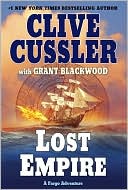Fatherland
Fatherland is set in an alternative world where Hitler has won the Second World War. It is April 1964 and one week before Hitler's 75th birthday. Xavier March, a detective of the Kriminalpolizei, is called out to investigate the discovery of a dead body in a lake near Berlin's most prestigious suburb.\ \ As March discovers the identity of the body, he uncovers signs of a conspiracy that could go to the very top of the German Reich. And, with the Gestapo just one step behind, March, together...
Search in google:
Fatherland is set in an alternative world where Hitler has won the Second World War. It is April 1964 and one week before Hitler's 75th birthday. Xavier March, a detective of the Kriminalpolizei, is called out to investigate the discovery of a dead body in a lake near Berlin's most prestigious suburb.As March discovers the identity of the body, he uncovers signs of a conspiracy that could go to the very top of the German Reich. And, with the Gestapo just one step behind, March, together with an American journalist, is caught up in a race to discover and reveal the truth — a truth that has already killed, a truth that could topple governments, a truth that will change history.Publishers WeeklyAn eerie, detailed alternate history serves as the backdrop for this otherwise conventional crime thriller. The setting is Berlin, 1964, some 20 years after the Third Reich's victory in WW II. Germany and the U.S., the world's two superpowers, find themselves in a cold war resulting from a nuclear stalemate; but U.S. President Joseph P. Kennedy is soon to visit Berlin for an historic summit meeting with Hitler, clearing the way for detente. Meanwhile, cynical police detective Xavier March investigates the drowning of Josef Buhler, former state secretary in the General Government. When the Gestapo takes over the case -- ruling it suicide -- March continues his investigation at the risk of his life, uncovering a deadly conspiracy at the highest levels of the Reich. With the help of American reporter Charlotte Maguire, he finds hard evidence of the wartime extermination of Europe's Jews, a secret that Buhler and his colleagues have been murdered to protect. Of course March and Maguire fall in love along the way. Harris (Selling Hitler) generates little suspense in this tale beyond his piecemeal rendering of the novel's unusual historical setting. The characters are flat and the plot largely predictable. And readers may well question the taste of using the Holocaust as the point of departure for a rather insubstantial, derivative thriller.
Chapter One\ Thick cloud had pressed down on Berlin all night, and now it was lingering into what passed for the morning. On the city's western outskirts, plumes of rain drifted across the surface of Lake Havel like smoke.\ Sky and water merged into a sheet of gray, broken only by the dark line of the opposite bank. Nothing stirred there. No lights showed.\ Xavier March, homicide investigator with the Berlin Kriminalpolizei — the Kripo — climbed out of his Volkswagen and tilted his face to the rain. He was a connoisseur of this particular rain. He knew the taste of it, the smell of it. It was Baltic rain from the north, cold and seascented, tangy with salt. For an instant he was back twenty years, in the conning tower of a U-boat, slipping out of Wilhelmshaven, lights doused, into the darkness.\ He looked at his watch. It was just after seven in the morning.\ Drawn up on the roadside before him were three other cars. The occupants of two were asleep in the drivers' seats. The third was a patrol car of the Ordnungspolizei — the Orpo, as every German called them. It was empty.\ Through its open window came the crackle of static, sharp in the damp air, punctuated by jabbering bursts of speech. The revolving light on its roof lit up the forest beside the road: blue-black, blue-black, blue-black.\ March looked around for the Orpo patrolmen and saw them sheltering by the lake under a dripping birch tree. Something gleamed pale in the mud at their feet. On a nearby log sat a young man in a black tracksuit, SSinsignia on his breast pocket. He was hunched forward, elbows resting on his knees, hands pressed against the sides of his head — the image of misery.\ March took a last draw on his cigarette and flicked it away. It fizzed and died on the wet road.\ As he approached, one of the policemen raised his arm.\ "Heil, Hitler!"\ March ignored him and slithered down the muddy bank to inspect the corpse.\ It was an old man's body — cold, fat, hairless and shockingly white. From a distance, it could have been an alabaster statue dumped in the mud. Smeared with dirt, the corpse sprawled on its back half out of the water, arms flung wide, head tilted back. One eye was screwed shut, the other squinted balefully at the filthy sky.\ "Your name, Unterwachtmeister?" March had a soft voice. Without taking his eyes off the body, he addressed the Orpo man who had saluted.\ "Ratka, Herr Sturmbannführer."\ Sturmbannführer was an SS title, equivalent in Wehrmacht rank to major, and Ratka — dog tired and skin soaked though he was — seemed eager to show respect. March knew his type without even looking around: three applications to transfer to the Kripo, all turned down; a dutiful wife who had produced a football team of children for the Führer; an income of 200 Reichsmarks a month. A life lived in hope.\ "Well, Ratka," said March in that soft voice again. "What time was he discovered?"\ "Just over an hour ago, sir. We were at the end of our shift, patrolling in Nikolassee. We took the call. Priority One. We were here in five minutes."\ "Who found him?"\ Ratka jerked his thumb over his shoulder.\ The young man in the tracksuit rose to his feet. He Could not have been more than eighteen. His hair was cropped so close the pink scalp showed through the dusting of light brown hair. March noticed how he avoided looking at the body.\ "Your name?"\ "SS-Schütze Hermann Jost, sir." He spoke with a Saxon accent — nervous, uncertain, anxious to please. "From the Sepp Dietrich training academy at Schlachtensee." March knew it: a monstrosity of concrete and asphalt built in the 1950s, just south of the Havel. "I run here most mornings. It was still dark. At first I thought it was a swan," he added helplessly.\ Ratka snorted, contempt on his face. An SS cadet seared of one dead old man! No wonder the war in the Urals was dragging on forever.\ "Did you see anyone else, Jost?" March spoke in a kindly tone, like an uncle.\ "Nobody, sir. There's a telephone booth in the picnic area, half a kilometer back. I called, then came here and waited until the police arrived. There wasn't a soul on the road."\ March looked again at the body. It was very fat. Maybe 110, kilos.\ "Let's get him out of the water." He turned toward the road. "Time to raise our sleeping beauties." Ratka, shifting from foot to foot in the downpour, grinned.\ It was raining harder now, and the Kladow side of the take had virtually disappeared. Water pattered on the leaves of the trees and drummed on the car roofs. There was a heavy rain-smell of corruption: rich earth and rotting vegetation. March's hair was plastered to his scalp, water trickled down the back of his neck. He did not notice. For March, every case, however routine, held — at the start, at least — the promise of adventure.\ He was forty-two years old — slim, with gray hair and coot gray eyes that matched the sky. During the war, the Propaganda Ministry had invented a nickname for the men of the U-boats — the "gray wolves" — and it would have been a good name for March in one sense, for he was a determined detective. But he was not by nature a wolf, did not run with the pack, was more reliant on brain than on muscle, so his colleagues called him "the Fox" instead.\ U-boat weather!\ He flung open the door of the white Skoda and was hit by a gust of hot, stale air from the car heater.\ "Morning, Spiedel!" He shook the police photographer's bony shoulder. "Time to get wet." Spiedel jerked awake. He gave March a glare.
\ Publishers Weekly - Publisher's Weekly\ An eerie, detailed alternate history serves as the backdrop for this otherwise conventional crime thriller. The setting is Berlin, 1964, some 20 years after the Third Reich's victory in WW II. Germany and the U.S., the world's two superpowers, find themselves in a cold war resulting from a nuclear stalemate; but U.S. President Joseph P. Kennedy is soon to visit Berlin for an historic summit meeting with Hitler, clearing the way for detente. Meanwhile, cynical police detective Xavier March investigates the drowning of Josef Buhler, former state secretary in the General Government. When the Gestapo takes over the case -- ruling it suicide -- March continues his investigation at the risk of his life, uncovering a deadly conspiracy at the highest levels of the Reich. With the help of American reporter Charlotte Maguire, he finds hard evidence of the wartime extermination of Europe's Jews, a secret that Buhler and his colleagues have been murdered to protect. Of course March and Maguire fall in love along the way. Harris Selling Hitler generates little suspense in this tale beyond his piecemeal rendering of the novel's unusual historical setting. The characters are flat and the plot largely predictable. And readers may well question the taste of using the Holocaust as the point of departure for a rather insubstantial, derivative thriller.\ \ \ \ \ Library JournalThe year is 1964. The setting is Berlin. JFK's father, Joe Kennedy, is president. Edward VIII is king, Wallis his queen. Adolf Hitler is about to celebrate his 75th birthday. In this thriller with a twist, the stalemate which ended World War II has evolved into a cold war, not between the Soviet Union and the United States, but between the Third Reich and America. Police investigator Xavier March handles a case involving the death of a prominent Nazi, an apparent suicide. The trail leads to other suicides, accidental deaths, a numbered vault in Zurich, and a beautiful American reporter. March discovers the pattern behind the deaths and locates incriminating papers exposing the Holocaust, which, because Germany didn't lose the war, has been kept secret for 20 years. Harris, author of the nonfiction title Selling Hitler LJ 5/15/86, is clearly well versed in the operations and machinations of the Nazi regime. He uses this knowledge to create a realistic and frightening world in which we all could be living. Recommended. \ -- C. Christopher Pavek, National Economic Research Associates Library, Washington, D.C.\ \ \ Library JournalThe year is 1964. The setting is Berlin. JFK's father, Joe Kennedy, is president. Edward VIII is king, Wallis his queen. Adolf Hitler is about to celebrate his 75th birthday. In this thriller with a twist, the stalemate which ended World War II has evolved into a cold war, not between the Soviet Union and the United States, but between the Third Reich and America. Police investigator Xavier March handles a case involving the death of a prominent Nazi, an apparent suicide. The trail leads to other suicides, accidental deaths, a numbered vault in Zurich, and a beautiful American reporter. March discovers the pattern behind the deaths and locates incriminating papers exposing the Holocaust, which, because Germany didn't lose the war, has been kept secret for 20 years. Harris, author of the nonfiction title Selling Hitler ( LJ 5/15/86), is clearly well versed in the operations and machinations of the Nazi regime. He uses this knowledge to create a realistic and frightening world in which we all could be living. Recommended. \ -- C. Christopher Pavek, National Economic Research Associates Library, Washington, D.C.\ \ \ \ \ Kirkus ReviewsThere are no happy novels set in Berlin, but Harris (Selling Hitler, 1986, on the diaries forgery) has managed a novel that dances on Hitler's grave with amusing success. \ Naturally, the whole book is entirely depressing, depression being the keynote of Hitlerian fantasias; its leading tones were struck earlier by Orwell's 1984 and le Carr‚'s The Spy Who Came in from the Cold. Harris's novel is set in 1964—Germany has won WW II, and this is the weekend of Hitler's 75th birthday, with huge celebrations ready to blow. After defeating Russia, Germany has formed a European trading bloc with 12 Western nations; German is the second language in all schools; everyone drives German cars, watches German TV, and so on. Switzerland alone is neutral, afloat on the Wehrmacht's stalemate in its cold war with the US. Tying in with Hitler's birthday is the announcement that—to reinforce detente between the two countries—US President Joseph P. Kennedy has been invited to Berlin. But that detente is threatened by the murders of two retired high officials, and Xavier March, homicide investigator with the Berlin Kriminalpolizei, lands the job of tracking down the killers. March is divorced and disaffected, and his ten-year-old son hates him for not being a super-Nazi like himself. Just as March is getting ahead in the case, he is taken off it by Globus, a top pig in the Gestapo. But March is too far in to stop. And he's fallen in with the beautiful American journalist "Charlie" Maguire, a smart and feisty woman who's always ready to prick March's Nazi chauvinism. The big secret: March has stumbled on the great Nazi coverup of the gas chambers, with ghastly proofs of it hidden in a numbered Swiss account.\ Farsighted readers know that massive dystopian evil such as Winston Smith faced in 1984 can provide no happy end. But only a Schweinehund wouldn't like this springtime for Hitler, with its waltzes through the Holocaust to the tunes of Lehr's The Merry Widow.\ \ \ \ \ \ From Barnes & NobleIn this painstakingly detailed & chillingly plausible parallel world, Hitler still lives, the U.S. seeks detente with the Third Reich, an important Nazi official is murdered, and a German investigator and a pretty American journalist set out to unravel a conspiracy.\ \








